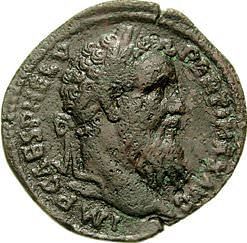#181CE
Explore tagged Tumblr posts
Photo

Pertinax
Pertinax was Roman Emperor for three months in 193 CE and, as successor to Commodus, it was hoped that he would restore much needed sobriety to the office of emperor. However, the former teacher, as well as putting in order the affairs of state, also embarked on a series of state spending cuts which led to his general unpopularity and eventual downfall at the hands of the Praetorian Guard.
After the assassination of Roman Emperor Commodus on December 31, 192 CE, the empire's throne was left vacant. As in the past - such as in the death of Emperor Caligula - the choice of a successor fell to the Praetorian Guard. Since there were no familial candidates, they chose a former teacher and military commander, Publius Helvius Pertinax. Unfortunately, his lack of skill in appeasing those around him (such as the Senate, the Guard, and the citizenry) would bring about his demise. After only eighty-seven days on the imperial throne, he would be dead. In his Roman History, Cassius Dio wrote, “Pertinax was as excellent and upright man, but he ruled only a very short time, and was then put out of the way by the soldiers.”
Early Life
Pertinax was born on August 1, 126 CE at Alba Pompeia in Liguria to a freed slave Helvius Successus; his mother's name is unknown. He led a truly 'rags to riches' story as his father went from slavery to success and wealth in the wool trade, allowing his son to receive a classical education which, in turn, permitted Pertinax to lead a quiet and uneventful life as a teacher of grammar. However, in 161 CE, at the age of thirty-five, he tired of the low pay and left teaching to enter the military.
Although he had no previous military experience, his education and family's money granted him the luxury of becoming the commander of a small legion of Gallic soldiers in Syria. His unique ability as a leader did not go unnoticed by those around him, and he quickly became a tribune stationed at York. Later, he fought alongside the future emperor Marcus Aurelius on the Danube frontier. Despite some early friction, his close ties to Marcus Aurelius eventually helped him become a senator, a consul in 175 CE, the governor of Dacia and later Syria in 181 CE, and prefect of Rome in 189 CE.
Continue reading...
32 notes
·
View notes